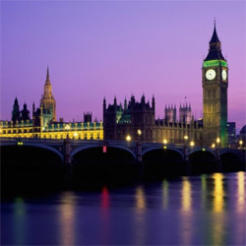Measures to make it more difficult and costly for charities to take part in judicial reviews are likely to enter law after the House of Commons yesterday voted down Lords amendments to the Criminal Justice and Courts Bill.
The bill introduces changes in the rules which will make it more expensive for charities and the ordinary individuals they support to bring cases against the government. It has currently returned to the Commons after having its third reading in the Lords.
The Lords had made a number of amendments which would have largely protected charities from a series of measures in the bill which increased their costs, but these were removed from the bill by the Commons in a vote last night. It is likely those changes will now enter law.
The measures have been opposed by charities and specialist sector law firms, as well as the Law Society, the Bar Council and the Chartered Institute of Legal Executives (Cilex).
Additional costs
The bill hampers the ability of charities to seek a “protective costs order” – a legal device designed to ensure that costs are capped for litigants who would otherwise not be able to afford to bring a review, even if it is in the public interest.
Under proposals in the bill, charities could still seek an order, but this would now not be permitted until after a “pre-permission” stage, during which the charity could already have potentially run up significant costs.
The changes will also increase the potential costs of charities which become “interveners” in judicial reviews – third parties who are given permission to address the court because they have particular expertise in a certain area. Up until now an intervener has borne their own costs but not those of the other side, but the new law makes an intervener potentially liable for all costs associated with their intervention.
The bill will also make it harder for individuals to claim legal aid. While this will not directly affect charities, it will affect claims brought by beneficiaries with charities’ support.
Lawyers oppose changes
Melanie Carter, a partner at specialist charity law firm Bates Wells Braithwaite, said her firm had lobbied against the changes because they would make judicial review more expensive for charities.
“The cost implications are so serious that many sector bodies won’t be able to take the risk,” Carter said. “As an intervener you may end up bearing the government’s costs.
“Interveners are there to speak for people who can’t speak for themselves, and it will now be harder for them to do that.”
She said the government had introduced the bill because it feared criticism and challenge of its actions in the courts.
“This is another attempt by government to curtail charities’ ability to criticise them. It’s another limit on charities’ ability to campaign.
“But it’s not just that. It’s also a direct attempt to remove people’s ability to challenge their decisions, introduced by an executive which doesn’t accept that their will should be questioned.”
Law Society president, Andrew Caplen, said: “This could rule out judicial review for some of the weakest and most vulnerable in society and would make it easier for public bodies to act without regard for the law.”
In a joint statement the Law Society, the Bar Council and Cilex said: “A key principle of the rule of law is that nobody, including the government, is beyond legal sanction.” But it said the rules allowed the government “to put itself, if not above the law, at least a little further from its grasp”.
Grayling: deliberate attack on charities
Chris Grayling, the Justice Secretary, has previously admitted that the rules are intended to silence charities.
Last year, he wrote in The Daily Mail that “the judicial review system is not a promotional tool for countless left-wing campaigners”.
“In the charity sector, a whole range of former advisers from the last government can be found in senior roles,” he said.
“One essential part of the campaigner’s armoury is the judicial review, through which it is possible for them to challenge decisions of government and public bodies in the courts. As a result, they hire teams of lawyers who have turned such legal challenges into a lucrative industry.”









